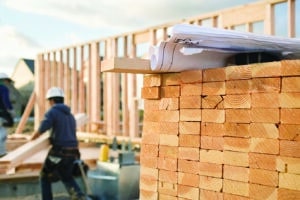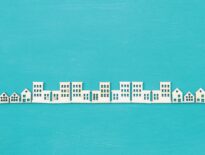A new poll conducted by listings portal Zillow finds many Greater Boston residents back the idea of adding density to their particular neighborhood, including over half who back buildings with up to 10 units.
Other results of the survey suggest locals also see connections between added density and solving problems like climate change, traffic and the region’s high home purchase prices and rents.
Zillow researchers surveyed of more than 14,000 adults across 29 metros in March of this year.
“More and more people understand that the key to stopping runaway housing costs is to build more homes,” Manny Garcia, senior population scientist at Zillow, said in a statement. “There is majority support among renters and homeowners, higher and lower wage earners, suburban and urban households, who all say we need more housing and support it in their neighborhoods.”
In the Boston area, poll respondents’ support for density dramatically increased as the size of a hypothetical development became smaller.
Zillow researchers said only 36 percent of respondents said they would welcome the addition of a large condominium or apartment building with 50 or more units nearby without any conditions like transit access or affordability requirements. But 44 percent said they would welcome a building with 10 to 49 units without preconditions, and 52 percent said they would welcome a building with 10 or fewer units.
Unusually, only 37 percent said they liked the idea of a sixplex popping up nearby without any other conditions and 43 backed four- and fiveplexes, while 61 percent backed duplexes and triplexes.
Most relevant for Beacon Hill policymakers and housing advocates, 68 percent of the poll’s respondents said they would welcome accessory dwelling units in their neighborhoods without any conditions. Housing advocacy group Abundant Housing Massachusetts successfully got a provision inserted into last year’s popular, but ultimately failed, economic development bonding bill that would have allowed an accessory dwelling unit of up to 900 square feet by right on any lot 5,000 square feet or bigger that had been zoned for single-family use.
In total 8 in 10 of Greater Boston poll respondents backed some form of increased density.
“These poll results make clear that there is broad public support for the work we are doing at AHMA to reform exclusionary zoning and create more housing opportunities and choice throughout Massachusetts,” Abundant Housing MA Executive Director Jesse Kanson-Benanav said in an email to Banker & Tradesman. “Elected leaders from Governor Healey to the legislature, and even do local city councils and town meeting members should heed the call and put action behind our share desire to tack Massachusetts housing affordability crisis: it is time to legalize accessory dwelling units and duplexes, three-deckers, and other small apartment buildings as of right across the state. Other states from Maine to Vermont to Montana to California have moved in this direction and this poll makes it clear that Massachusetts are ready to do the same.”
The poll also asked questions about how those new housing units should be added to neighborhoods: 74 percent in the Boston area said homeowners should be allowed to convert their single-family homes into multi-unit properties, but only 43 percent said they would invest money into their own property to do this if it were allowed by right.
In addition, 67 percent said they would accept multifamily housing if it fit into the “general look and feel” of their neighborhood and 64 percent said having more affordable housing in their neighborhood was more important than having free parking for themselves.
And 73 percent of Boston-area respondents said they thought more small and medium-sized apartments in residential neighborhoods would create more affordable housing options, while 63 percent said they thought it would encourage residents to take public transit, walk or bike and 69 percent said they thought it would make those alternatives to driving more desirable.







